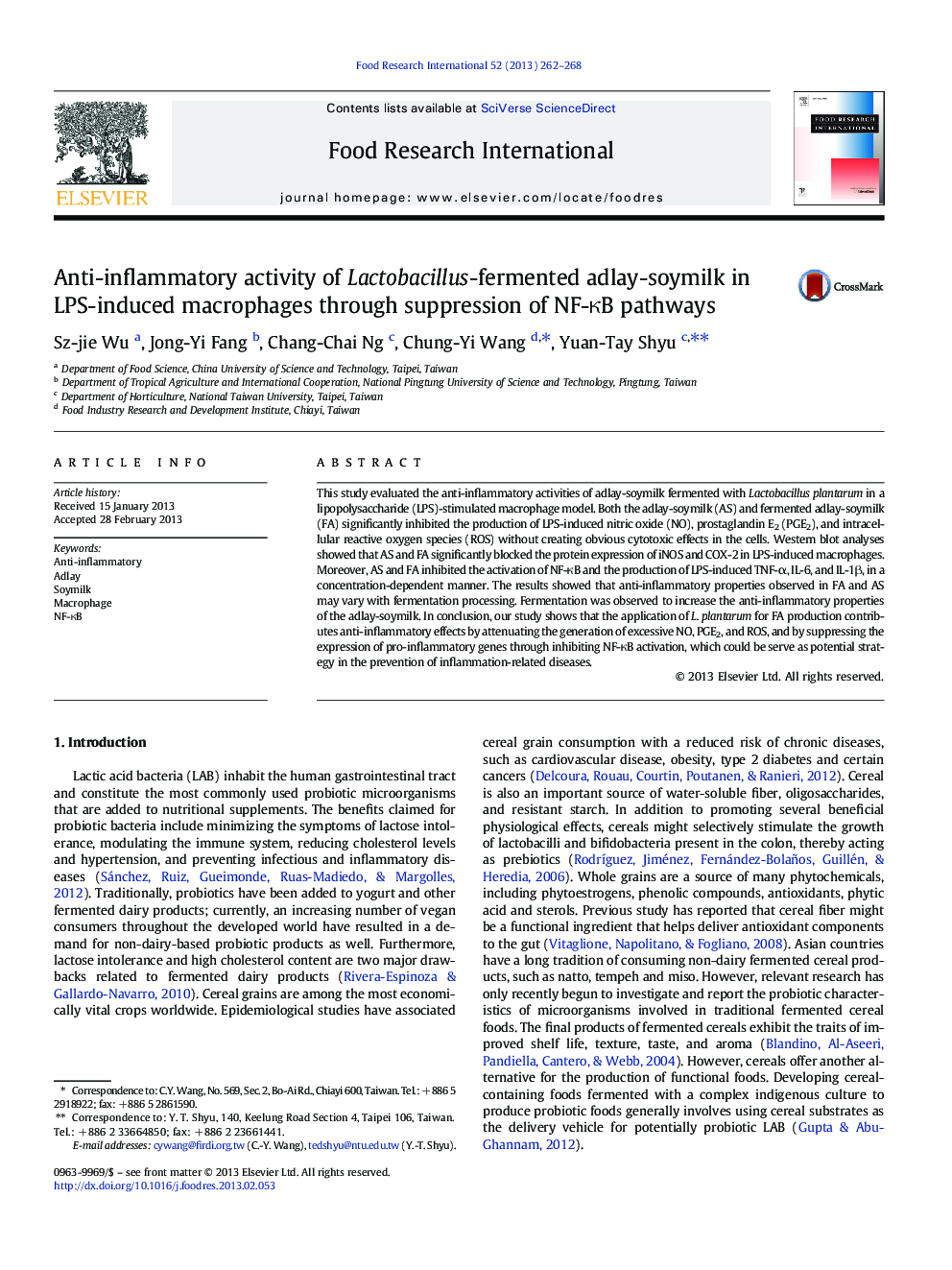| Article ID | Journal | Published Year | Pages | File Type |
|---|---|---|---|---|
| 6398232 | Food Research International | 2013 | 7 Pages |
â¢Cereals increasing anti-inflammatory activity by fermentation with L. plantarumâ¢Fermented cereals attenuating the generation of excessive NO, PGE2, and ROSâ¢Fermented cereals suppressing the expression of pro-inflammatory genesâ¢Fermented cereals inhibiting NF-κB activationâ¢Fermented cereals are potential approaches for inflammation-related diseases.
This study evaluated the anti-inflammatory activities of adlay-soymilk fermented with Lactobacillus plantarum in a lipopolysaccharide (LPS)-stimulated macrophage model. Both the adlay-soymilk (AS) and fermented adlay-soymilk (FA) significantly inhibited the production of LPS-induced nitric oxide (NO), prostaglandin E2 (PGE2), and intracellular reactive oxygen species (ROS) without creating obvious cytotoxic effects in the cells. Western blot analyses showed that AS and FA significantly blocked the protein expression of iNOS and COX-2 in LPS-induced macrophages. Moreover, AS and FA inhibited the activation of NF-κB and the production of LPS-induced TNF-α, IL-6, and IL-1β, in a concentration-dependent manner. The results showed that anti-inflammatory properties observed in FA and AS may vary with fermentation processing. Fermentation was observed to increase the anti-inflammatory properties of the adlay-soymilk. In conclusion, our study shows that the application of L. plantarum for FA production contributes anti-inflammatory effects by attenuating the generation of excessive NO, PGE2, and ROS, and by suppressing the expression of pro-inflammatory genes through inhibiting NF-κB activation, which could be serve as potential strategy in the prevention of inflammation-related diseases.
